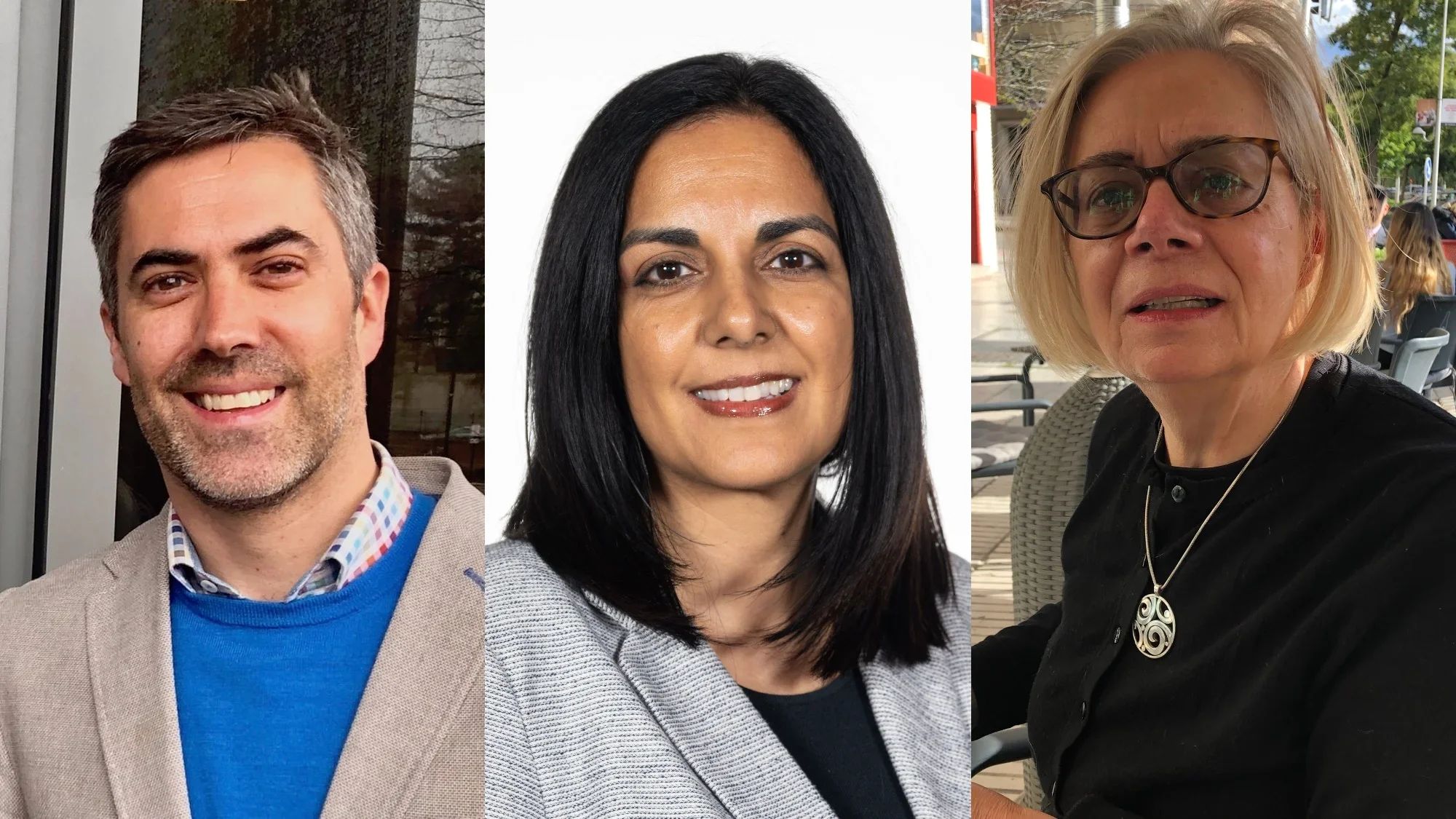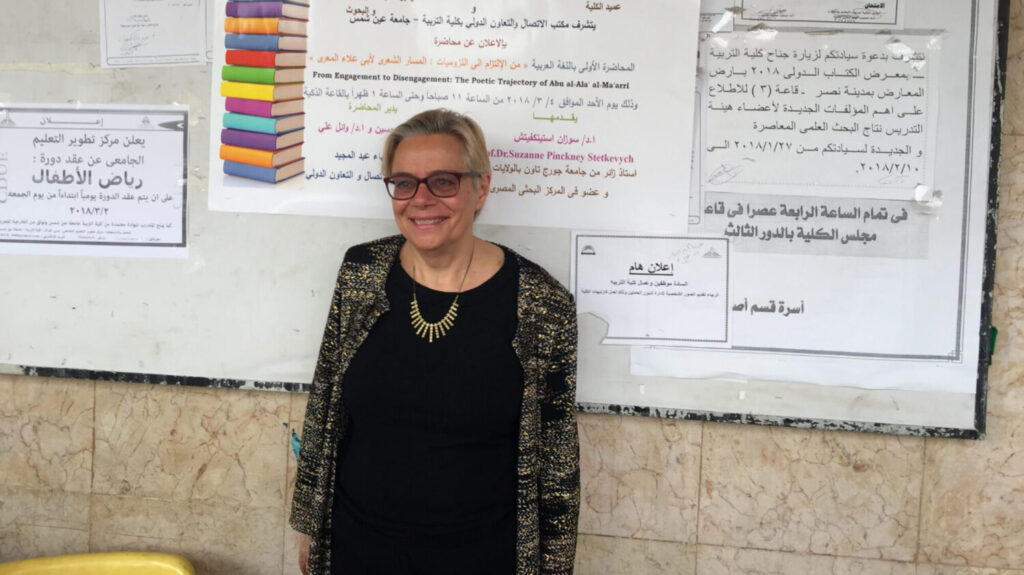Georgetown Professor Wins Prestigious Prize for the Study of Classical Arabic Poetry
Read More About the Georgetown professor making international waves for her dedicated study of Classical Arabic poetryCollege of Arts & Sciences Faculty Recognized for Outstanding Research by the Provost’s Office
The Office of the Provost recognized six faculty members of the College of Arts & Sciences for their outstanding research, scholarship and interdisciplinary collaborations.
“I am incredibly proud of all of the outstanding faculty members who were recognized this semester,” said Rosario Ceballo, dean of the College of Arts & Sciences. “Across all of our departments and programs, we have tremendous, world-class researchers, thinkers and scholars who are not only changing the shape of academia, but the way we view and engage with the wider world.”
A Lifetime of Arabic Poetry
Suzanne Stetkevych, a specialist in Classical Arabic poetry, received the Career Research Achievement Award.
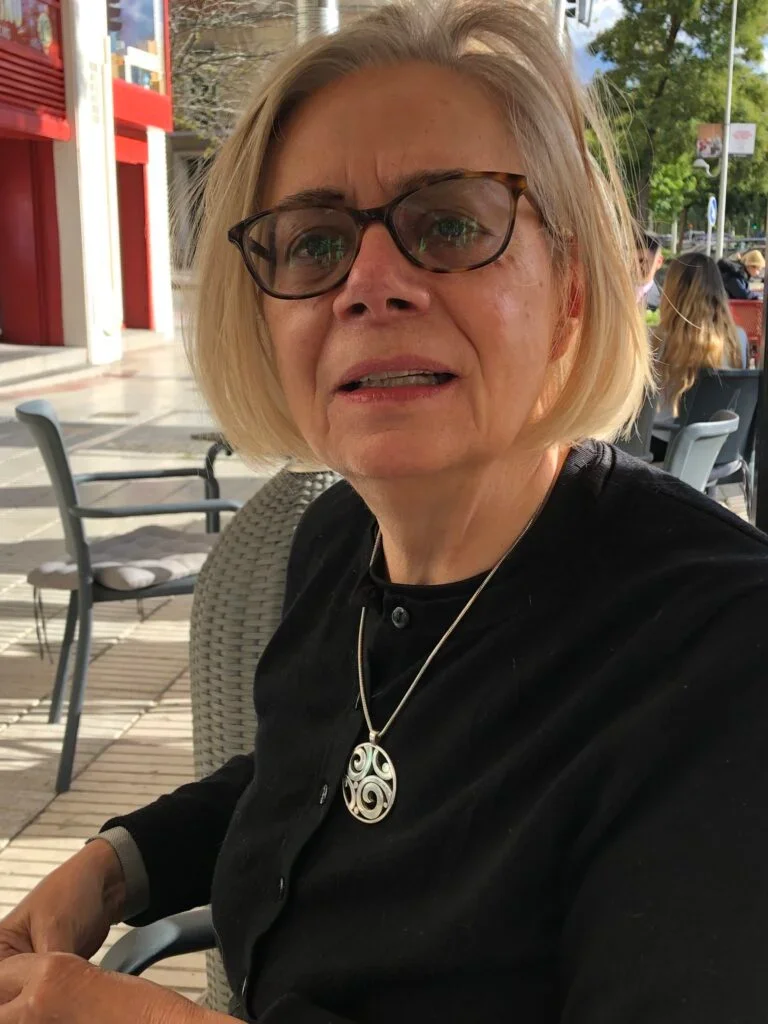
Suzanne Stetkevych, the Sultan Qaboos bin Said Professor of Arabic and Islamic Studies.
“I am especially honored to have been nominated for this award by my colleagues in the Department of Arabic and Islamic Studies, who have generously supported and encouraged me during my ten years here,” said Stetkevych. “I hope to express my gratitude for this award in the form of further research on the origins of pre-Islamic Arabic poetry.”
Stetkevych, who has held the Sultan Qaboos bin Said Professor of Arabic and Islamic Studies since 2014, is recognized by her peers around the world as one of the finest scholars in her field. Last year, Stetkevych received the prestigious King Faisal Prize in the category of Arabic Language and Literature. Already a monumental achievement for a Western academic, Stetkevych was the first female scholar to win the award since 1994.
A prolific writer and editor, Stetkevych has penned four books on the study of Arabic poetry and produced more than 40 peer-reviewed articles and book chapters. A laundry list of awards has accompanied her mountain of research, including the Middle East Medievalists Lifetime Achievement Award and the Sheikh Zayed Book Award.
“The 1500-year tradition that I study continues to inform cultural perception and production in the Arab and more broadly Islamic world, and to take its place in our understanding of world literature,” said Stetkevych.
A Tale of Espionage in Qing Dynasty China
Gregory Afinogenov received the Distinguished Achievement in Research Award for his book Spies and Scholars: Chinese Secrets and Imperial Russia’s Quest for World Power.
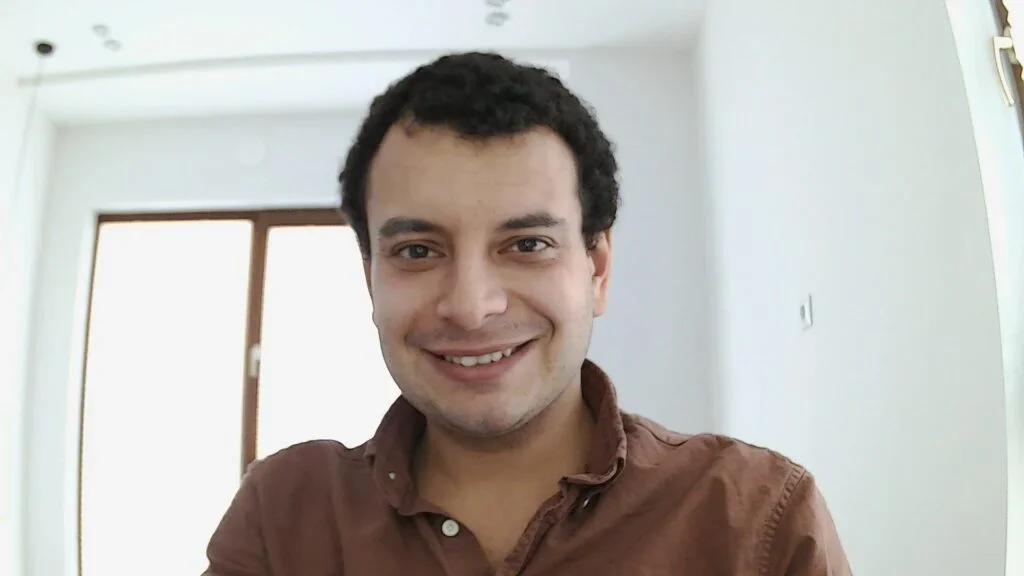
Gregory Afinogenov, an associate professor in the Department of History.
“I’m honored to receive this award and truly staggered to be counted among such talented faculty,” said Afinogenov, an associate professor in the Department of History. “I owe everything I’ve achieved at Georgetown to the community of staff, faculty and students in my department, and I’m looking forward to supporting other colleagues as they succeed in turn.”
Published by Harvard University Press in 2020, Afinogenov’s debut book explores the covert operation of an intelligence network designed by the Russian Empire to spy on Qing Dynasty China between the 17th and 19th centuries. At its height, the operation stretched across the country, involving bribed porcelain artists, Buddhist monks and undercover students.
“The book reads like a detective novel,” wrote John Steinberg, a history professor at Austin Peay State University, in a review for the Journal of Jesuit Studies. “The author’s tremendous erudition, based on his rich and comprehensive research in archives, results in revelations about a host of people ranging from missionaries to bureaucrats representing both countries to adventurers and merchants who together comprised the brain-trust that formed the impressions about China that existed in the West.”
Since its publication, the book has won three awards, including its publisher’s Thomas J. Wilson Memorial Prize, which is bestowed on the best first book published by Harvard University Press. It has also received the 2021 W. Bruce Lincoln Prize and the Independent Publisher Book Awards’ 2021 Gold Medal in the category of World History.
A Cross-Campus Collaboration to Model Forced Migrations
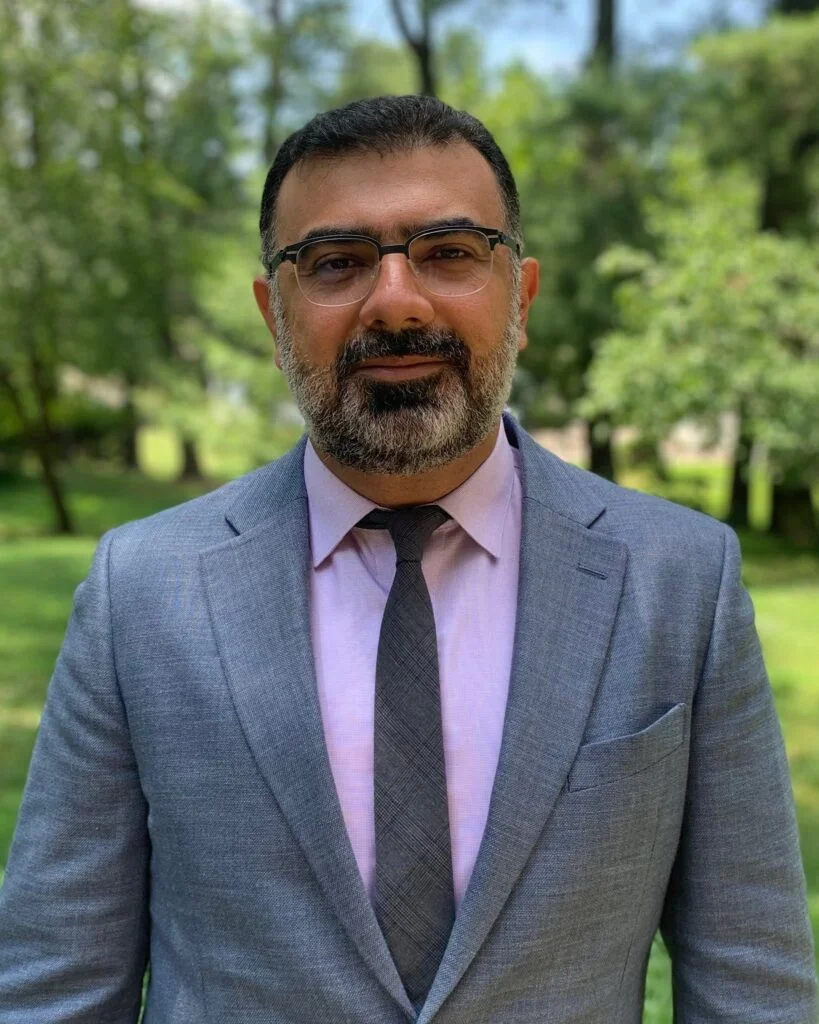
Ali Arab, n associate professor in the Department of Mathematics and Statistics.
Lisa Singh, Katharine Donato and Ali Arab received a Sonneborn Interdisciplinary Collaboration Chair, which honors collaborative teams of faculty members. Singh and Arab are faculty members in the College of Arts & Sciences. Donato, the Donald G. Herzberg Professor of International Migration, holds her appointment in the School of Foreign Service.
The team, composed of a computer scientist, a demographer and a statistician, are working in concert to develop a framework to predict forced human migration.
“Katharine, Ali and I are honored to be the recipients of the Sonneborn Chair,” said Singh, a professor in the Department of Computer Science and the McCourt School of Public Policy. “It gives us the opportunity to not only advance our cross-disciplinary research on understanding emerging forced displacement using novel data sources, but also to develop new ways to engage more students in this work.
The team’s framework uses a computationally-driven grounded theory approach to assess how different factors interact to affect forced migration. Their work draws on a variety of data sources, from Google searchers to administrative data gleaned from social media platforms.
“It’s been a great pleasure for me to have the opportunity to collaborate with Katharine and Lisa, and the rest of our team over the past several years,” said Arab, an associate professor in the Department of Mathematics and Statistics. “As an interdisciplinary statistician, the forced migration project ties together many of my interests and experiences in modeling problems at the intersection of social and environmental processes, climate change and human rights.”
A Collaborative Study of the Indian Ocean Region
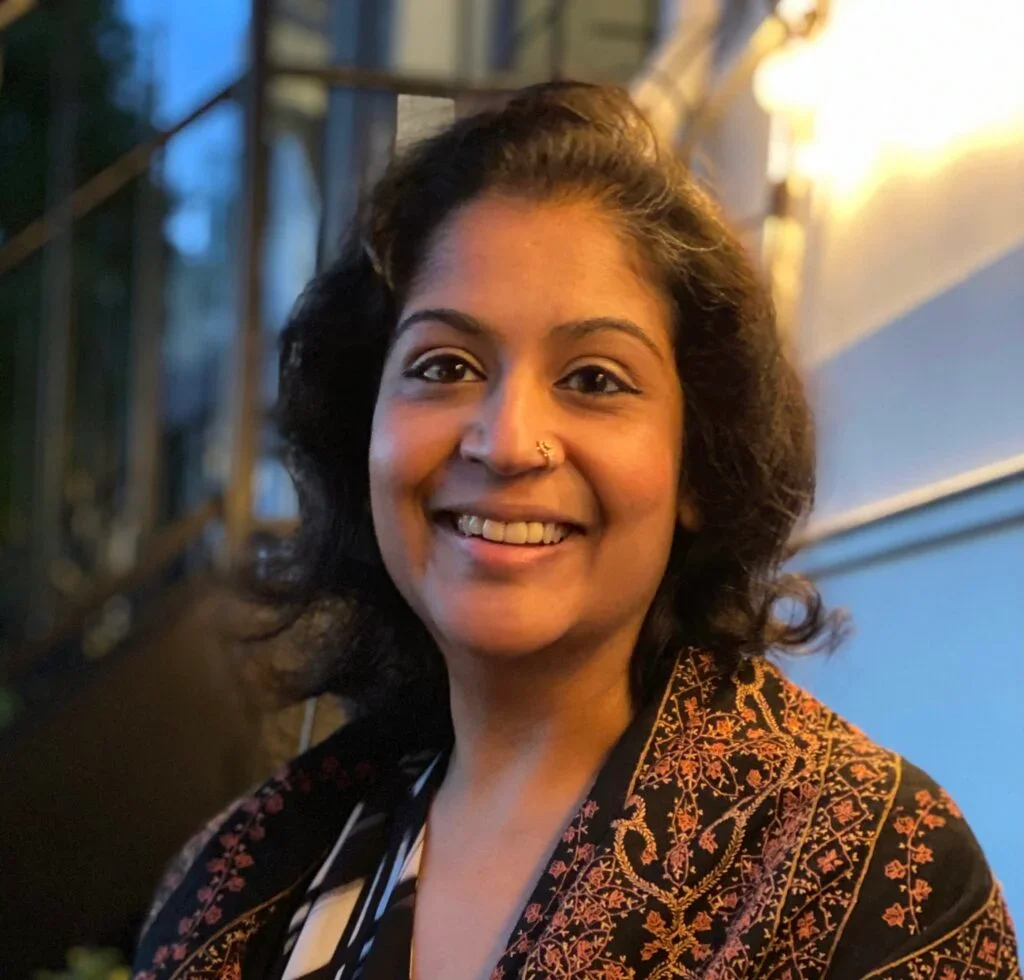
Ananya Chakravarti, an associate professor in the Department of History.
Rogaia Abusharaf, Ananya Chakravarti and Cóilín Parsons received a Sonneborn Interdisciplinary Collaboration Chair for their work as part of the Indian Ocean Working Group.
“Over half the world’s population lives within 50 miles of the shores of the Indian Ocean, yet study of the intricate and long-running connections across the Indian Ocean are comparatively new,” said Parsons, an associate professor in the Department of English and the director of Global Irish Studies. “Georgetown University has been at the forefront of the study of this region for a decade now, and we are delighted to see our cross-disciplinary work in the humanities recognized with a Sonneborn Chair.”
Formed in 2014, the working group has served as a launchpad for lectures, conferences and collaborative research conducted on the Indian Ocean world.
“I’m delighted and honored to have the opportunity to work collaboratively with my colleagues to increase our community’s investment in and knowledge of the Indian Ocean world,” said Chakravarti, an associate professor in the Department of History. “I’m particularly excited to be able to bring that part of the world into ongoing academic conversations here on the history of slavery, on mobility and on the environment.”
The Sonneborn Chair provides funding and support for three years of research, which the team is eager to pursue.
“Over the next three years we plan to work closely with students across both campuses to advance our knowledge of pressing global issues – climate change, forced labor and political violence – by paying attention to Indian Ocean stories,” said Parsons.
This chairship helps bridge the scholarship and research produced by the working group, which has been primarily based in Qatar, to the main campus here in Washington, DC.
“The Indian Ocean, with its beautiful warm waters, has sustained a huge part of humanity for much of our history,” said Chakravarti. “I see this chair, and the opportunity it provides to expand our investment in understanding the region, as part of Georgetown’s commitment to producing knowledge in service of the world.”
Related News

Colleen Baer (C’22) Contributes to Research at the Intersection of Religion and Reconciliation in Ireland
Read More About Colleen’s Research